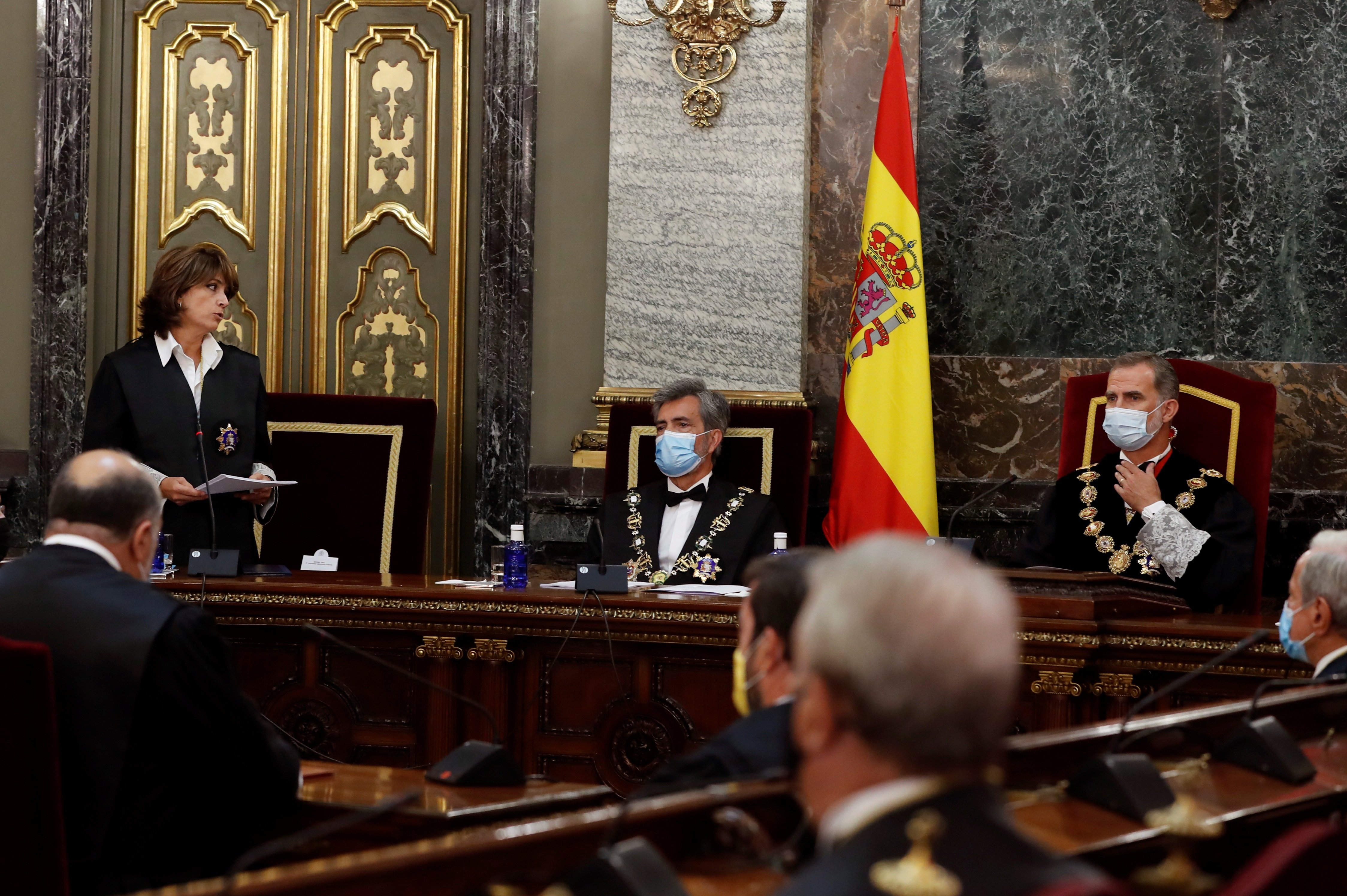It was the job of attorney general Dolores Delgado today to deliver the Spanish prosecution service's annual report for 2019. A year in which the trial of the Catalan political prisoners took centre-stage, and the attorney general clearly had to address the matter. Delgado, justice minister in Pedro Sanchez's first cabinet, tiptoed through the issue, closing ranks with the Spanish judiciary. The Supreme Court trial of the leaders of the Catalan independence process, she argued, was an example of "institutional normality" and the application of "the legal order". She stressed that the pro-independence leaders were given a hearing with all the necessary guarantees and that the trial was broadcast in its entirety via internet streaming.
Delgado was presenting the report on the 2019 year at this Monday's opening ceremony for the new judicial year, presided over by king Felipe VI as required by protocol. The monarch did no more than moderate the act, without giving any address. Former Socialist politician Delgado remarked that the trial had "the guarantee of being open to the public enhanced" by its broadcast. She raised no objection to the sentence convicting nine of the defendants for sedition and misuse of public funds.
The attorney general concluded her review of the independence trial by underlining that it "culminated a criminal process of special importance at all levels, in which the different legal agents involved gave an example of institutional normality and a commitment to duty and legality", she concluded.
Delgado also focused part of her speech on the coronavirus and its consequences. "The relatives and friends of the dead were the first to offer us a testimony of courage and dignity, but they were not the only ones. The people of Spain have been exemplary, despite the difficulties," she said. She stressed that during the lockdown and de-escalation "prosecutors continued to do their duty, performing their required duty shifts when or distance working from home."
Complaints and silences
It was a judicial ceremony marked by both constitutional complaints - judge Carlos Lesmes called urgently for the long-overdue renewal of the General Council of the Judiciary to be carried out - and also by constitutional silences: the king presided over today's ceremonial judicial occasion, as required, but no royal speech was made. Meanwhile, the prosecutors of the Supreme Court have an investigation open to delineate the illicit activities of his father, Juan Carlos I, and whether or not those activities are protected by the immunity which the monarch possessed as head of state. The king emeritus was not in the Supreme Court today, but thousands of miles away, in the United Arab Emirates, the country to which he has fled.

